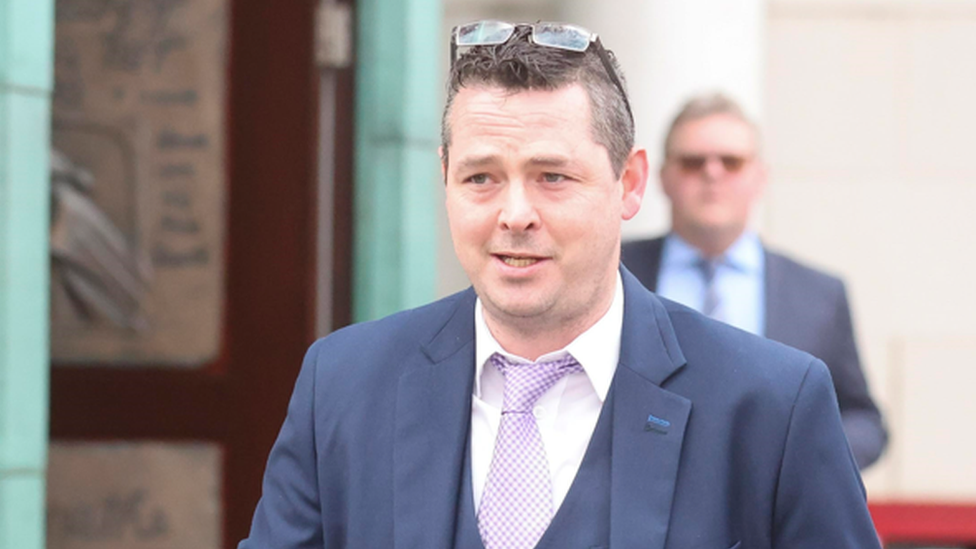Gavin McKenna: Judge rejects 拢225,000 claim over baton round which hit boy
- Published

Mr McKenna sustained a permanent eye injury when struck in the face by the baton round in 1997
A British soldier who fired a baton round which partially blinded a County Armagh schoolboy used reasonable force, a High Court judge has ruled.
Mr Justice McAlinden rejected Gavin McKenna's 拢225,000 compensation claim.
He found that the lance corporal and a colleague had come under sustained attack in Lurgan and genuinely feared for their safety.
In April 1997, Mr McKenna, then 13, sustained a permanent eye injury when struck in the face by the baton round.
The incident happened near the town's Kilwilkie estate.
He sued the Ministry of Defence (MoD) for negligence, insisting he was an entirely innocent victim out gathering wood for a bonfire with two friends.
The MoD argued reasonable force had been deployed after a six-man Royal Irish Regiment foot patrol was targeted by up to 30 youths hurling stones, bricks and bottles.
A single, aimed baton round was fired at another identified target in the crowd because of the risk to the soldiers' lives and wellbeing, according to the defendant.
With the level of potential damages agreed at 拢225,000, the case centred on a dispute over liability.
In evidence, Mr McKenna recalled being hit by the plastic bullet as he stood up in a field beside the Antrim Road.
He stated that he was unaware of any Army unit in the area and specifically denied involvement in any public disorder that night.
The former soldier who fired the baton round told the court that one group of youths came out of the Kilwilkie estate to attack his unit, before a second crowd emerged from a wooded area to throw more missiles.
Along with a senior ranking corporal, he became separated from the other four members of their patrol at the Bell's Row crossing.
Fearing they were to be completely cut off from the rest of the unit as part of a pre-planned ambush, the former lance corporal said: "The concern is that they end up taking your weapons off you and then use the weapons against you."
The corporal gave him the order to fire the baton gun at another youth 30 metres away with a Celtic scarf over his face and apparently getting ready to throw a rock, the court heard.
He aimed at the target's legs but could not say who the round struck.
'Very unfortunate'
Both soldiers were then able to sprint down the road, rejoin the rest of their patrol and return to Lurgan police station.
Assessing the two conflicting accounts, Mr Justice McAlinden said it was extremely unlikely that the lance corporal would have been ordered to fire at a youth if no-one was posing any threat - especially as a newly appointed major was part of the patrol as an observer.
Citing the plaintiff's status as a member of Republican Sinn F茅in, the judge added it was reasonable to conclude he had a "long-standing animus" towards the British military.
Mr McKenna was neither the intended target nor part of the crowd advancing towards the soldiers, but had been struck on the head while still crouching or hunkering down, he concluded.
"The two soldiers honestly believed that the group of youths that was attacking them from the field beside the Antrim Road were intent upon entering the road in order to cut them off from the rest of the patrol," Mr Justice McAlinden held.
"They genuinely feared for their own safety."
The judge said he was satisfied that the manner in which the baton gun was discharged "constituted the use of force which was reasonable".
Dismissing the claim for compensation, he acknowledged it was "very unfortunate" that Mr McKenna had been struck and seriously injured by a round which missed the intended target.
However, he maintained that the "circumstances in which [the lance corporal] fired the baton gun and the manner in which he fired the baton gun were entirely justified on the night in question".